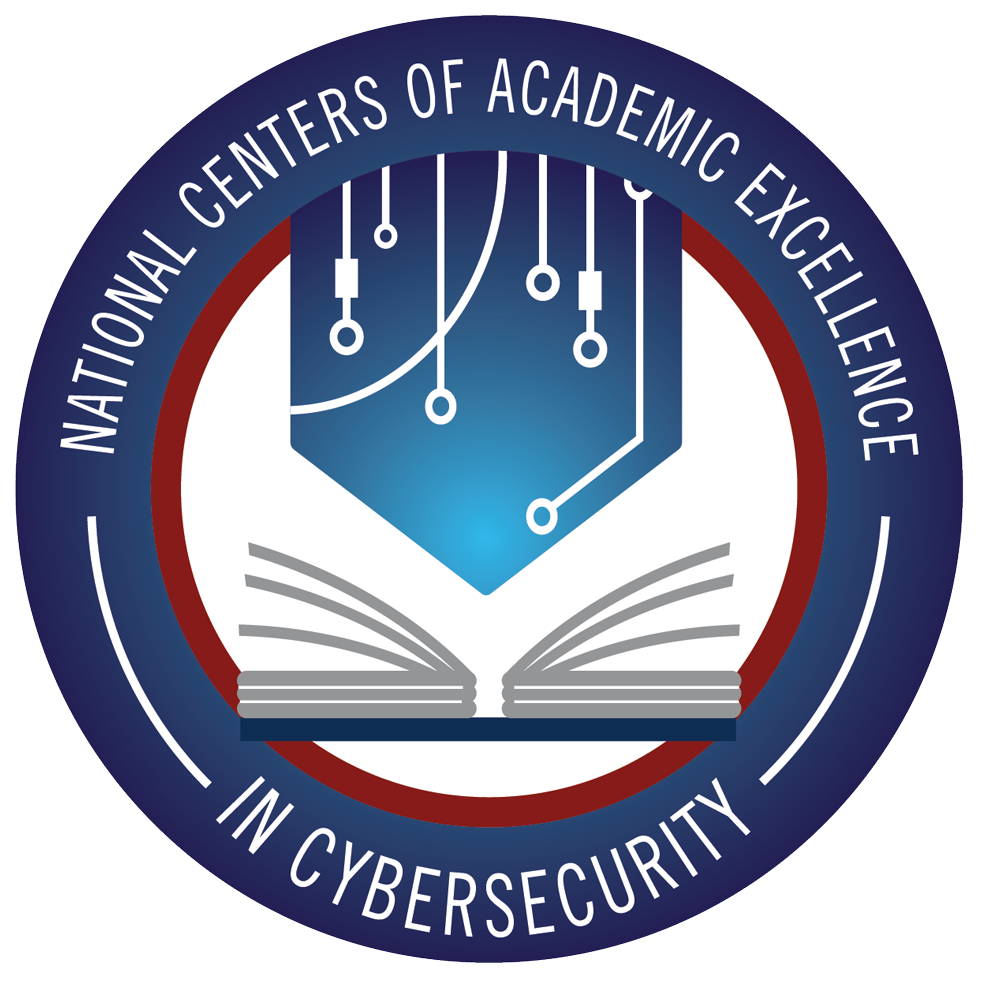In this major, you’ll be prepared to work in today's fastest-growing tech fields. And you’ll do it at an NSA-designated Center of Academic Excellence in Cyber Defense Education (CAE-CD). This is a mark of quality that employers recognize, and it gives you access to resources not offered in other programs.
Through NYSCAS’ carefully designed cybersecurity curriculum, you’ll master skills such as:
- Securing networks and protecting sensitive information
- Designing and implementing computer systems
- Troubleshooting hardware and software issues
- Analyzing vulnerabilities and building defenses
- Working with cloud systems and virtual technologies


“ When we talk about cybersecurity in my classroom, we don't just discuss theory. We actually break into vulnerable systems, understand their vulnerabilities, and learn to protect against them. Students see firsthand how a weak password can be exploited or how a vulnerable process can be compromised. That hands-on experience is what makes our graduates so valuable in the industry. ”
- Prof. Satchit Hegde, cybersecurity program coordinator
Is Cybersecurity Right For You?
As a cybersecurity student, you'll develop the knowledge necessary to work in a variety of information technology roles, including as a security analyst, IT manager, system or network administrator, cloud computing specialist and more.
The most successful students are curious about how technology works, persistent when faced with a challenge, imaginative in finding solutions, and willing to keep learning as technologies evolve.
You don't need to be a programming expert to do well. Many of our students come with little or no coding background but thrive through analytical thinking and problem-solving.
And with a degree in cybersecurity, you'll enter an industry that offers good pay and tremendous growth potential.
On average, people in computer and information technology make more than $100,000 a year. And according to the Bureau of Labor Statistics, demand is expected to grow 15% in the coming decade. That’s much more than average. If you focus on information security, the outlook is even better, with growth of 33%.
Prep for Valuable Industry Certifications While You Study
NYSCAS curriculum gives you a head start on the skills you’ll need to pass credentialling exams, making you more marketable when you graduate. These include:
- CompTIA A+ (Hardware and Software)
- CompTIA Network+
- CompTIA Security+
- Cisco CCNA (Cisco Certified Network Associate)
- CWNA (Certified Wireless Network Administrator)
“ We align our courses with industry certifications. For example, when students take GCON 202 they learn the content for CompTIA Network+ certification. By the time they graduate, our students are equipped not only with a degree but also with professional certifications, or the knowledge needed to earn those certifications. This gives them a strong advantage in today’s job market. ”
- Prof. Payam Bina, deputy chair, cybersecurity

Want to Build a Better System? Learn by Doing
At NYSCAS, you’ll practice on the same tools and systems network professionals use every day. This hands-on approach gives you real experience with the challenges employers say they need solved.
- Test yourself on platforms like Hack the Box and Try Hack Me
- Deploy your own operating systems and secure them against attacks
- Design network architectures and implement security protocols
- Identify vulnerabilities and develop solutions to real-world problems
As part of the major, you’ll also do an internship at a computer programming firm, tech company, or in the IT department at organizations like New York’s Metropolitan Transit Authority.
Along the way, you'll build a professional portfolio that shows future employers what you can do.
“Students often wonder how the login process works; what goes on behind the scenes and how it's secured. We show them exactly how information moves through networks and how to protect their home systems from a privacy and security standpoint.”
What You'll Learn — and When You'll Learn It
Phase 1: Build your foundation
- Learn the fundamentals of hardware and operating systems (CompTIA A+).
- Understand networking basics and how computers communicate (Network+).
- Develop troubleshooting skills for common technical issues.
- Become proficient in Windows, Mac OS, and Linux environments.
- Begin working with basic programming and scripting.
Phase 2: Develop your technical expertise
- Configure and manage network systems.
- Implement security controls to protect sensitive data (Security+).
- Practice ethical hacking to identify and address vulnerabilities.
- Deploy and manage cloud computing environments (AZ-800).
- Work with VPNs and encryption tools.
- Test your skills in cybersecurity challenges and competitions.
Phase 3: Prepare for your career
- Do an internship in a real-world IT environment.
- Create a portfolio of projects that highlights your skills.
- Practice presenting technical information to nontechnical audiences.
- Network with alumni and others through events and advisory board connections.
- Prepare for certification exams that complement your degree.
Course Spotlight: Local Area Networks
This class aligns with Microsoft's AZ-800 certification. In it you'll get a chance to:
- Explore how Windows networks function in professional environments.
- Discover how login credentials work and how attackers can exploit them.
- See how information travels from one computer to another.
- Learn to manage Microsoft's cloud infrastructure in Azure.
- Apply security concepts to protect networks from common threats.
These skills are increasingly critical as more companies move to cloud-based systems.
“This course sets students up for success. It focuses them on a tangible goal that's going to land them a job. The students really learn from the hands-on aspect, the troubleshooting, and the practical problem-solving experience.”
Small Classes, Personal Attention
Your cybersecurity classes typically will have less than 15 students. This means your professors will know you by name, you’ll get immediate help when facing technical challenges, and you’ll have more hands-on time with equipment and systems.
Your professors aren't only active in the classroom, either. They're professionals who participate in cybersecurity working groups and conferences, contribute to national teaching resources, and maintain connections with employers through the major’s advisory board. Since they stay current with the industry, they’re able to help you understand the cybersecurity landscape you’ll graduate into.
At NYSCAS you’ll also get to connect with others who share your interest in technology through events like field trips to Cisco's Manhattan office and participation in the college’s Computer Club. This group brings together students from all years and majors, giving you opportunities to explore technology and develop leadership skills before entering the job market.
Alumni Spotlight: Balancing Night Shifts and Networking Classes
Manuel was inspired to pursue higher education after his mom went back to school and got her associate’s degree from NYSCAS. But he worked full time as a security guard, and his shift was from midnight to 8 a.m.
When he enrolled in the cybersecurity program, Manuel knew it wouldn’t be easy. But he strategically managed his course load each semester and made the most of campus resources like the writing center. His path took longer, but his persistence paid off. After graduating in 2020, he now works as both a desktop support engineer for the Excess Line Association of New York (ELANY) and an IT analyst for Lazard Asset Management.

“ Know what you can handle. Balance your load. It might take you a little longer, but that's what I needed to do to graduate. If I could do it, anybody can. ”
- Manuel Colon '20, IT analyst and NYSCAS cybersecurity graduate
A Fast Track to Your Master's Degree
The Integrated Technology Merit Fast Track allows eligible students to take up to 9 credits of graduate-level courses as an undergraduate. You can apply these credits to both degrees, saving you time and money on your master’s in cybersecurity.
You’ll also have a seamless transition to Touro's Graduate School of Technology, where you'll continue developing skills while building your professional network.
Advisory Board
Our cybersecurity program is guided by insights from our Industry Advisory Board, ensuring that our curriculum stays aligned with the needs of employers and the latest trends in cybersecurity.
Advisory Board Members: Jeremy Rambarran, Avital Cohen, Pui Evans, Rocelli de Guzman, Albert Bina, Arjun K Mahat, Aleksandr Polyakov, Satchit Hegde, Jack Chan, Rocelli de Guzman
Ready to Secure Your Future?
If you're fascinated by technology and want to protect the digital systems we all depend on, apply today. You could be learning cybersecurity skills in a matter of weeks!


